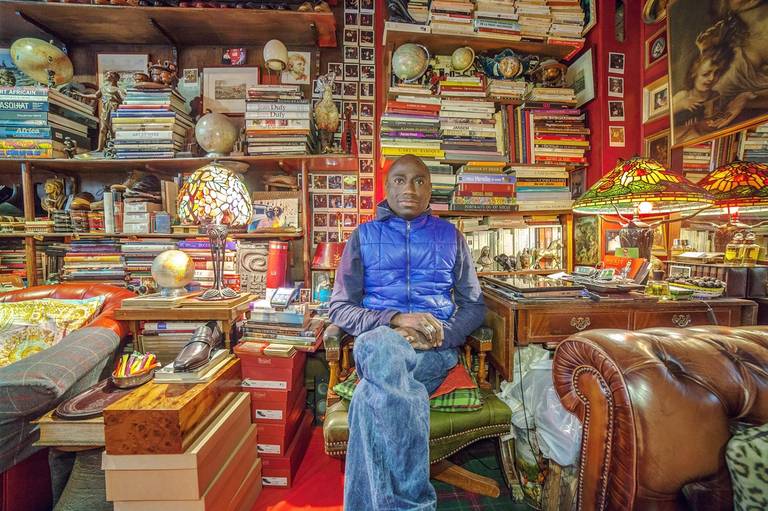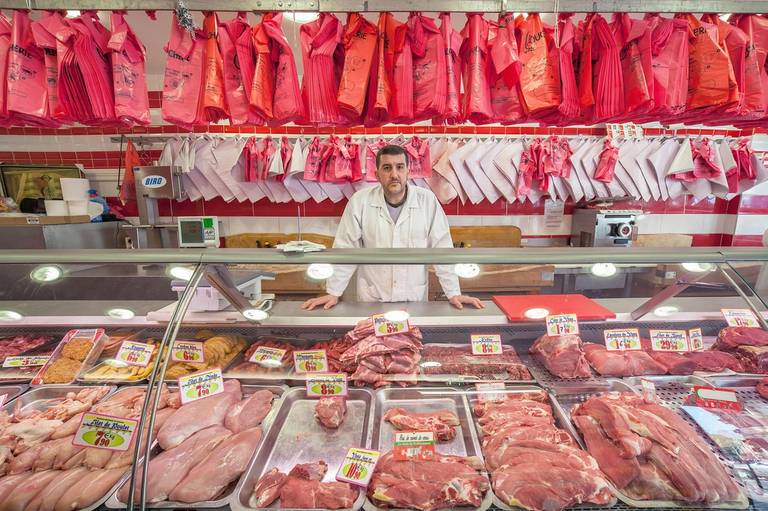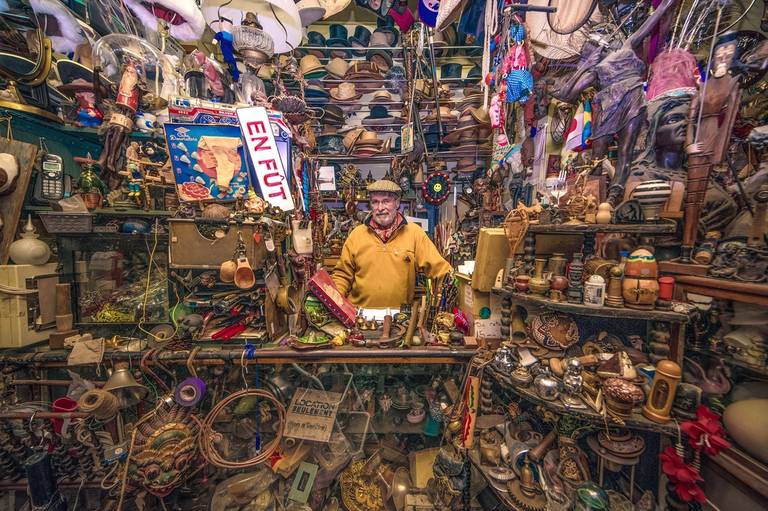Wordsworth at 250
Discussed in this essay:
Radical Wordsworth: The Poet Who Changed the World, by Jonathan Bate. Yale University Press. 608 pages. $35.
William Wordsworth: A Life, by Stephen Gill. Oxford University Press. 688 pages. $32.95.
The Making of Poetry: Coleridge, the Wordsworths, and Their Year of Marvels, by Adam Nicolson. Farrar, Straus and Giroux. 448 pages. $35.
“I feel like the first men who read Wordsworth. / It’s so simple I can’t understand it.” Randall Jarrell’s bemusement is a reminder that, from the start, Wordsworth has provoked people to wonder what they want from poetry. “It may be considered as characteristic of our poet’s writings,” remarked William Hazlitt in The Spirit of the Age,
that they either make no impression on the mind at all, seem mere nonsense-verses, or that they leave a mark behind them that never wears out. . . . To one class of readers he appears sublime, to another (and we fear the largest) ridiculous.
On the 250th anniversary of Wordsworth’s birth, Hazlitt’s smaller class of readers appears to have won out. And one book to which the poet’s contemporaries didn’t have access—his autobiographical masterpiece, The Prelude, published posthumously in 1850—has left behind an even bigger mark. As Helen Vendler has recently observed, Wordsworth “mapped the region that we still inhabit, inventing an acute psychology of mind.” Which is to say: he’s not just sublime; he’s subliminal.
And yet, Adam Kirsch’s question is a good one: “Has there ever been a great poet as tempting to laugh at as William Wordsworth?” One way to account for this puzzling state of affairs is to claim that there are two Wordsworths—“Two Voices,” as the poet J. K. Stephen put it: “one is of the deep . . . And one is of an old half-witted sheep.” For every line that intones “the still, sad music of humanity,” there’s another that drones the shrill, mad music of inanity. But the neatness of this explanation evades the peculiarity of Wordsworth’s bequest. He inspires not just opposition but uncertainty, which is why the bewilderment of his early readers is often more revealing than the assurance of disciples or detractors. “We have been at a loss to know whether to take him as in jest or in earnest,” wrote one critic; another admitted that “we are almost as much at a loss to select particular instances of Mr. Wordsworth’s beauties as of his defects. They are so infused into each other.” To be mystified is to be with Wordsworth.
The mystery deepens when one tries to make sense of the person behind the poetry. “A plain, elderly, white-haired man, not prepossessing, and disfigured by green goggles.” Ralph Waldo Emerson’s first impression of Wordsworth did not bode well. The begoggled sage then held forth, and his guest came away from Rydal Mount feeling that he’d been in the presence of “a narrow and very English mind.” That was in 1833. Emerson had been subjected to the unlovely sight of an individual who had become an institution, but he still felt it necessary to remind readers that “new means were employed, and new realms added to the empire of the muse, by his courage.” Perhaps this reminder is still needed to offset the feeling that we know Wordsworth all too well. The critic John Bayley once noted that “Wordsworth’s poems are like one’s parents’ clothes—always out of fashion.” In many ways, the criticisms of his first poetic children have stuck. Percy Shelley denounced him in 1815 for abandoning “truth and liberty” and turning Tory (other accusations followed—he was “cold,” “a male prude,” “a kind of moral eunuch”). It wasn’t long before Lord Byron rechristened him “Turdsworth” and dismissed his work as “drowsy frowzy.”
The prevailing view of Wordsworth—pontifical, orthodox, austere—was entrenched by the Victorians, who praised him for the very qualities the Younger Romantics had mocked. By the end of the century, Mrs. Humphry Ward could gratefully observe that, unlike those other Romantic reprobates, Wordsworth was “a respectable genius.” One wonders what she would have made of the poet’s comment that “genius is not incompatible with vice.” Certain details about his private life had not yet come to light, but there were early signs of Wordsworth’s allergy to what he once called “circumspect Decencies.” In his “Autobiographical Memoranda,” dictated in 1847, he notes that his mother died when he was seven, and his father when he was thirteen. Rather than telling us how he felt, he tells us other things instead. Even before their deaths, he was “stiff, moody, and violent,” the only one of his mother’s children who caused her anxiety (she said he’d be “remarkable either for good or evil”). Then he recalls acts of trespass: skulking into the attic of his grandfather’s house with the intention of killing himself with a dueling foil, or roughhousing in the old man’s drawing room:
The walls were hung round with family pictures, and I said to my brother, “Dare you strike your whip through that old lady’s petticoat?” He replied, “No, I won’t.” “Then,” said I, “here goes”; and I struck my lash through her hooped petticoat.
He doesn’t remember how he was punished—and in any case, he adds, “I had become perverse and obstinate in defying chastisement.”
There’s a venerable tradition of reading Wordsworth without the whips, foils, and petticoats. This is partly owing to various suppressions by the poet and his biographers. When he was twenty-two years old, for example, Wordsworth wrote a seditious pamphlet, “A Letter to the Bishop of Llandaff,” denouncing the monarchy and class system, but refrained from publishing it; a few months earlier, he’d fathered an illegitimate child, although this remained a secret until long after his death. Such revelations notwithstanding, Wordsworth is still regarded as an edifyingly safe nature poet, the man who proclaims that Nature never did betray the heart that loved her. But his attraction to nature often involves betrayals of one sort or another—as though he were testing her love or trying to discover what his own love could drive him to. In a draft of “Nutting,” he tells of “the wantonness in which we play / With things we love,” and some wanton words in the published version—“erect,” “virgin,” “tempting,” “voluptuous,” “touch,” “ravage,” “sullied”—speak volumes. Elsewhere, he remembers himself at around ten years old, surveying deep pools and dark chasms: “I loved to look in them, to stand and read / Their looks forbidding, read and disobey.” Wordsworth’s life—and the poetry he made from it—is best read as a refusal to obey.
After his parents died, Wordsworth’s guardians had expected him to take holy orders, but the young man who would later claim he had no need of a Redeemer was averse, as he put it, to “vegetating on a paltry curacy.” Midway through his university studies, he embarked on a three-thousand-mile walking tour across France and Switzerland. (“We were early risers in 1790,” his traveling companion said, “and generally walked 12 or 15 miles before breakfast.”) Wordsworth enthusiastically stepped into the French Revolution, and after graduating from Cambridge he returned to France and began an affair with a young woman named Annette Vallon. Their daughter was born in 1792; a few weeks later, Louis XVI was executed and France declared war on Britain. Wordsworth was now back in England, without a home and without prospects.
In the first detailed, public account of the poet’s life, published in 1839, Thomas De Quincey writes—coyly—of his subject’s acquaintance with “all the animal passions (or appetites).” De Quincey is not at liberty to say more, but he does say that the poet was “above all, not self-denying”—and that, by the mid-1790s, he’d had some kind of nervous breakdown. At night, he played cards with his friends “as the best mode of beguiling his sense of distress, whatever it might be.” Readers hadn’t yet seen The Prelude, where Wordsworth remembers not just supporting radical causes, but also loitering by card tables and coasting round “Tavern, Brothel, Gaming-house.” Elsewhere in the poem, his figures of speech tell of error and errancy: “I have play’d with times . . . And accidents as children do with cards.”
Something about Wordsworth, or something in him, won’t be laid to rest. David Bromwich claims that guilt about what Wordsworth did in France—the revolution he joined and parted from, the family he began and left behind—became “the dominant motive of his poetry.” That’s probably right, although the poetry would be less thrilling (and less disturbing) if “motive” were taken as the sole arbiter of its meaning. Sometimes Wordsworth speaks of “the weight of chance desires” or “the weight of too much liberty,” but often he conceives luck as a kind of inheritance and implies that one can never get enough of freedom. (In “Stepping Westward,” the idea that we might be “the guests of Chance” is imagined as a “wildish destiny” and a “spiritual right.”) The word he reaches for when describing the causes and effects of poetry—it appears over forty times in the preface to Lyrical Ballads—is “pleasure,” and Wordsworth remains our most subtle celebrant of the feeling because he’s fascinated by its strangeness. One of The Prelude’s foundational spots of time is “an act of stealth / And troubled pleasure,” and another volume begins with the poet “in discontent / Of pleasure high and turbulent.” Whatever else it is, pleasure isn’t only pleasurable.
“The Poet,” Wordsworth observed, “Hath, like the Lover, his unruly times; / His fits when he is neither sick nor well.” Critics have tended to play down this unruliness; the proclamation that poetry is “emotion recollected in tranquillity,” for example, has become a sound bite, but it didn’t mark the end of Wordsworth’s thought:
The emotion is contemplated till by a species of reaction the tranquillity gradually disappears, and an emotion, similar to that which was before the subject of contemplation, is gradually produced, and does itself actually exist in the mind. In this mood successful composition generally begins, and in a mood similar to this it is carried on . . .
Everywhere in his poetry there are signs of this carrying on—mixtures of the deliberative and the desirous. Sometimes the effect is almost a whisper. In “It is a beauteous Evening, calm and free,” the freedom renders calmness just a shade more excitable. In the sonnet on Westminster Bridge, the journey over the line-end from “Ne’er saw I, never felt, a calm so deep!” to “The river glideth at his own sweet will” conjoins untroubled depth and a quickening surface. The skating scene in The Prelude is a more dramatic compound of stillness and motion:
When we had given our bodies to the wind,And all the shadowy banks, on either side,Came sweeping through the darkness, spinning stillThe rapid line of motion; then at onceHave I, reclining back upon my heels,Stopp’d short; yet still the solitary CliffsWheel’d by me, even as if the earth had roll’dWith visible motion her diurnal round;
It’s an archetypally Wordsworthian moment, not least because his action makes the universe revolve around him (note the shift from “we” to “I,” along with the metrical stress and proud pause on that “I”). “How much self reliance it implies to write a true description of anything,” Emerson remarked of this passage. “So simple a fact no common man would have trusted himself to detach as a thought.” Such trust is the catalyst for a dizzying new sense of the self’s place in the world. From “spinning still” to “still . . . Wheel’d,” there’s a glimmer of a pun on “still” (for nothing is moving, and everything is). The writing captures a blend of the stationed and the vertiginous that is one of Wordsworth’s gifts to modern poetry. At his most characteristic, he turns disorientation into pleasure and makes pleasure vouch for amplitude: “when baffled most / Not least delighted.”
Two remarkable people—Wordsworth’s sister, Dorothy, and Samuel Taylor Coleridge—helped to give him the courage to resist what he called “that most dreadful enemy to our pleasures, our own pre-established codes of decision.” In his engaging book The Making of Poetry, Adam Nicolson suggests that 1797 marks the most famous year in the history of English poetry, as the trio met almost daily to share ideas, writing, and enthusiasms. One product of these exchanges was the 1798 collection Lyrical Ballads. But during this period Wordsworth also sensed trouble: “The style of Coleridge and myself would not assimilate.” Coleridge would later denounce his friend’s “prosaisms” and “sudden and unpleasant sinkings,” as well as “a something corporeal, a matter-of-factness, a clinging to the palpable, or often to the petty.” Yet Wordsworth’s commitment to his own art of sinking, and to prosy palpability, has proved as enduring a legacy as his visionary yearnings; if he created the taste by which he has come to be relished, that taste includes what The Prelude describes as “the vulgar light / Of present actual superficial life.” His poetry is the ordination of the ordinary. For Wordsworth, to encounter “a beauteous sunbeam in a sunny shed,” or a street “laid open in its morning quietness, / Deep, hollow, unobstructed, vacant, smooth,” is to feel the truth of Paul Éluard’s comment that there is another world, but it is in this one.
“My life has been unusually barren of events,” Wordsworth wrote in 1801. That is clearly not true; and besides, no poet has ever made the barren feel so unusual—and so vital. Take this moment from the manuscript of “Resolution and Independence,” composed in 1802. Wordsworth has been agonizing over the meaning of life, and then the Leech-gatherer comes into view:
Now whether it was by peculiar graceA leading from above, a something givenYet it befel that in that lonely placeWhen up & down my fancy thus was drivenAnd I with these untoward thoughts had strivenI to a lonely place, a Pond did comeBy which an old man was, far from all house or home
If this writing has grace, then it also contains a stubborn ungainliness. It gives a sense not just of a past self having striven with untoward thoughts, but of a writer who feels that any attempt to polish up his style could betray his bewilderment. “In that lonely place” he came to—we wait for it—“a lonely place”; the awkwardness of the repetition makes the poetry more somatic than semantic, and while the syntax invites us to anticipate something big, the stanza doesn’t so much end as stop. As the poet wrote to his sister-in-law Sara Hutchinson,
What is brought forward? “A lonely place, a Pond” “by which an old man was, far from all house or home”—not stood, not sat, but “was”—the figure presented in the most naked simplicity possible.
This moment has the wrong-right note—faintly risible, obscurely resonant—that Wordsworth brought to poetry. It’s related to what Robert Frost later discerned in him: “that lovely banality and that penetration that goes with it.”
“Wordsworth’s Poetical Works,” by Veronica Bailey © The artist. Courtesy Bernheimer Fine Art, Meggen, Switzerland
What Wordsworth’s inheritors have taken from his example is not dissimilar to what he took from the Leech-gatherer: the obstinacy, the enigma, and the potential of “something given,” which signifies both an offering and his recalcitrance. It’s as though the poet requires us to read him despite himself; or, rather, that he has the audacity to speak with all of himself. Ezra Pound’s advice in “A Few Don’ts by an Imagiste”—“Read as much of Wordsworth as does not seem too unutterably dull”—is a backhanded compliment, but it’s still a compliment (and note Pound’s “too,” which acknowledges that dullness itself can spur new forms of expression). Likewise, when Elizabeth Bishop wrote to Robert Lowell of her ambition to be “a minor female Wordsworth,” and of her dream to create “great clumsy structures like Wordsworth’s Leech-gatherer, that somehow lift the great sail and catch the wind,” she knew that the poet’s clumsiness was not easily separable from his greatness.
“It is for the Biographer, not the Poet, to give the accidents of individual Life,” Coleridge insisted. But Wordsworth was an accident that needed to happen to poetry. The Prelude is an experiment—“9,000 lines,” Wordsworth exclaimed, “an alarming length! And a thing unprecedented in Literary history that a man should talk so much about himself”—and the act of its composition entails a kind of derangement. As the poet expands what’s possible, he becomes aware of “Two consciousnesses, conscious of myself / And of some other Being.” An acute sense of being, it turns out, is a sense of one’s inscrutability. An early notebook contains a jotting—“I was surprized to find what / I had written”—and his poetry is often self-surprising in this way. If there’s one subject—or mood—that Wordsworth bequeaths to modernity, it’s the integrity of incoherence.
That’s why he is so reimaginable, although I’m not sure that Jonathan Bate’s biography, Radical Wordsworth: The Poet Who Changed the World, offers much that’s new. The book, Bate explains, is “a present for Wordsworth on his 250th birthday,” and there are other instances of the critic’s egotistical non-sublime along the way. He condescends to tell us at the outset not to skip past quotations from the poems. “Please do the opposite: slow down and savour their words.” As it happens this is good advice, because after the first few chapters Bate’s commentary is a pretty tepid affair. In his preface, he speaks of the faults of previous biographies and of his wish to make students and general readers “excited about Wordsworth,” but reading Bate’s book alongside Stephen Gill’s newly revised William Wordsworth: A Life, I felt much more excited by the latter. (Gill’s book and John Worthen’s excellent study, The Life of William Wordsworth, remain the best single-volume biographies.)
Early on, Bate notes the poet’s reference to “the twilight of rememberable life” and says, “Wordsworth was the first master-poet of memory. That very word ‘rememberable’ belongs distinctively to him.” It doesn’t—the Oxford English Dictionary records versions as far back as the fifteenth century—but he did coin “unrememberable” (a draft of The Prelude speaks of “the time of unrememberable being”). The feeling this word evokes plays a pivotal role in the work, too, and is something akin to the cryptic yet supportive sense of “unremembered pleasure” in the “Tintern Abbey” poem. Wordsworth is often spoken of as an elegiac writer—Bate sees his poetry as “essentially elegiac in spirit” and as embodying “a sense of loss”—but the sense of imminence and expectation in his writing is equally powerful. The poet’s past is never certain, and by refusing to become an expert on himself, Wordsworth is always at the beginning of everything he means to be. “Up the brook / I roam’d in the confusion of my heart,” he writes in Lyrical Ballads, “Alive to all things and forgetting all.” There’s a healthy heedlessness of absorption in him, a turbulence that spills out of the past and beyond the present.
This is one reason why Wordsworth is wary of those who lack inexperience, and why children keep popping up at crucial moments. I don’t mean innocent, beatific, “Romantic” contraptions, but rather these creatures:
A race of real children, not too wise,Too learned, or too good; but wanton, fresh,And bandied up and down by love and hate,Fierce, moody, patient, venturous, modest, shy,Mad at their sports like wither’d leaves in winds
Child’s play is a close cousin to what Wordsworth thought poetry should be: shameless, opportunistic, resilient. And it’s notable, especially given his own childhood experiences, that the youngsters in his poems are often found playing or dancing on graves. There’s the wonderfully intransigent little girl in “We Are Seven” who, when told that two of her siblings are dead and her family has shrunk to five, keeps replying, “Nay, we are seven!” On other occasions, even the sudden death of parents doesn’t interrupt the kids’ true calling:
The trouble of the elder BroodI know not that it stay’dSo long—they seiz’d their joy, and TheyHave sung, and danc’d, and play’d.
To seize your joy (rather than being merely seized by it) is to sense that joy is no less transient than other things, which is all the more reason to lay claim to it—proactively, ravenously. We do not lack for well-behaved renderings of Wordsworth as mournful and moral, but his influence is better conceived in this tribute from Sidney Keyes:
No room for mourning: he’s gone outInto the noisy glen, or stands between the stonesOf the gaunt ridge, or you’ll hear his shoutRolling among the screes, he being a boy again.
This is the figure to whom Wordsworth often returns: the child who discovers his power amid peril. That child is himself, his Idiot Boy, and many other itinerant rogues—and he ends up doing his own thing not so much by counting his losses as by getting lost.
We are still searching for Wordsworth. One sketch gets close, though, to what he called “the hiding-places of my power.” In “My First Acquaintance with Poets,” Hazlitt remembered his shock in 1798 upon meeting a man with “a convulsive inclination to laughter about the mouth, a good deal at variance with the solemn, stately expression of the rest of his face.” He then compared Wordsworth’s demeanor to that of Peter Bell, the pleasure-seeking ruffian in his poem. As Wordsworth read Peter Bell aloud, Hazlitt noted that “ ‘his face was like a book where men might read strange matters,’ and he announced the fate of his hero in prophetic tones.” The poet, who hid Peter Bell from public view for twenty years, announced the fate of his hero in the last stanza:
And Peter Bell, who till that night,Had been the wildest of his clan,Forsook his crimes, forsook his folly,And after ten months’ melancholyBecame a good and honest man.
Although the neatness of this conversion is a sly, half-parodic glance at the fate of Coleridge’s Ancient Mariner (“A sadder and a wiser man, / He rose the morrow morn”), it’s also a prophecy of the virtuous figure that Wordsworth would become.





